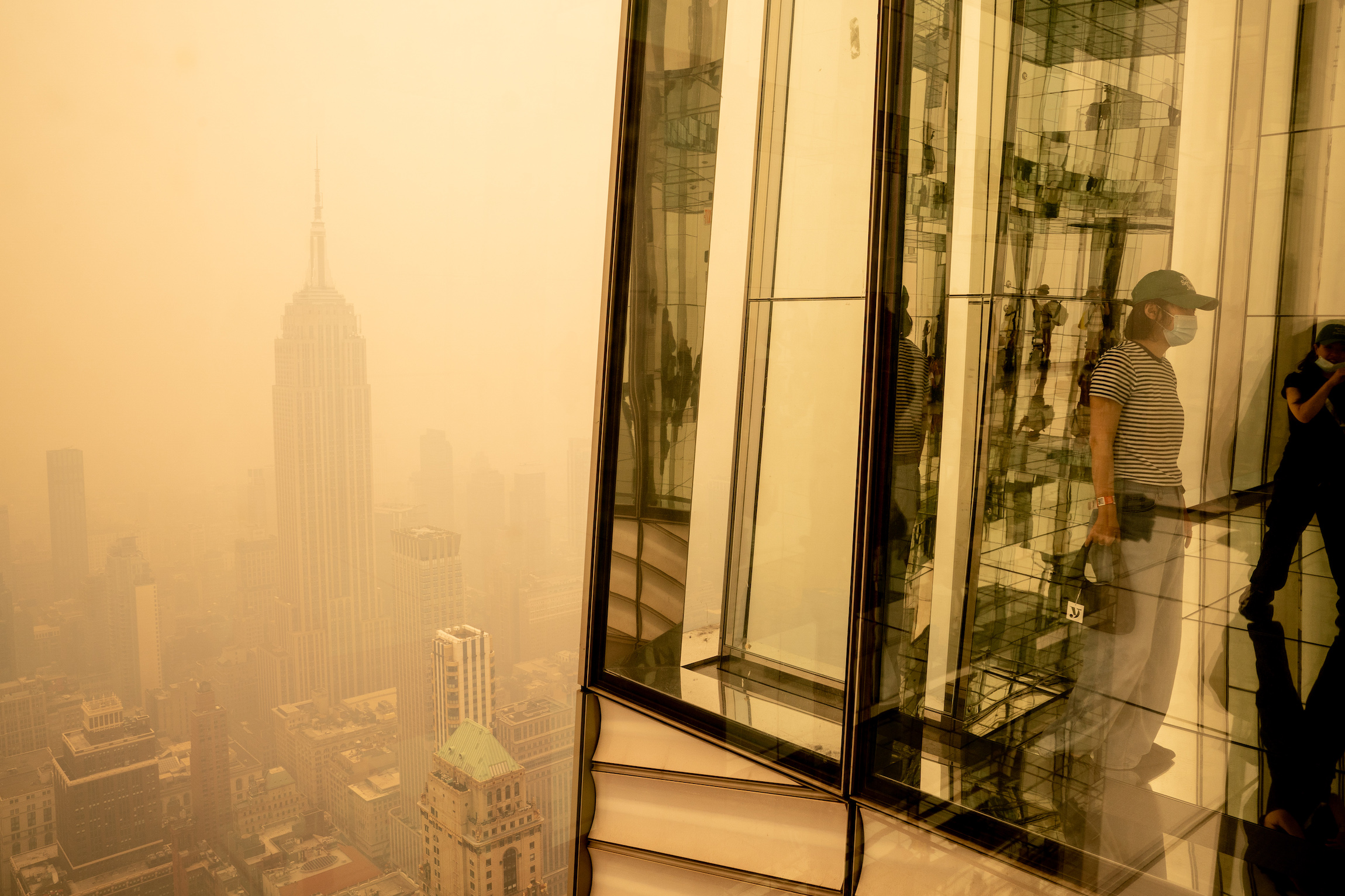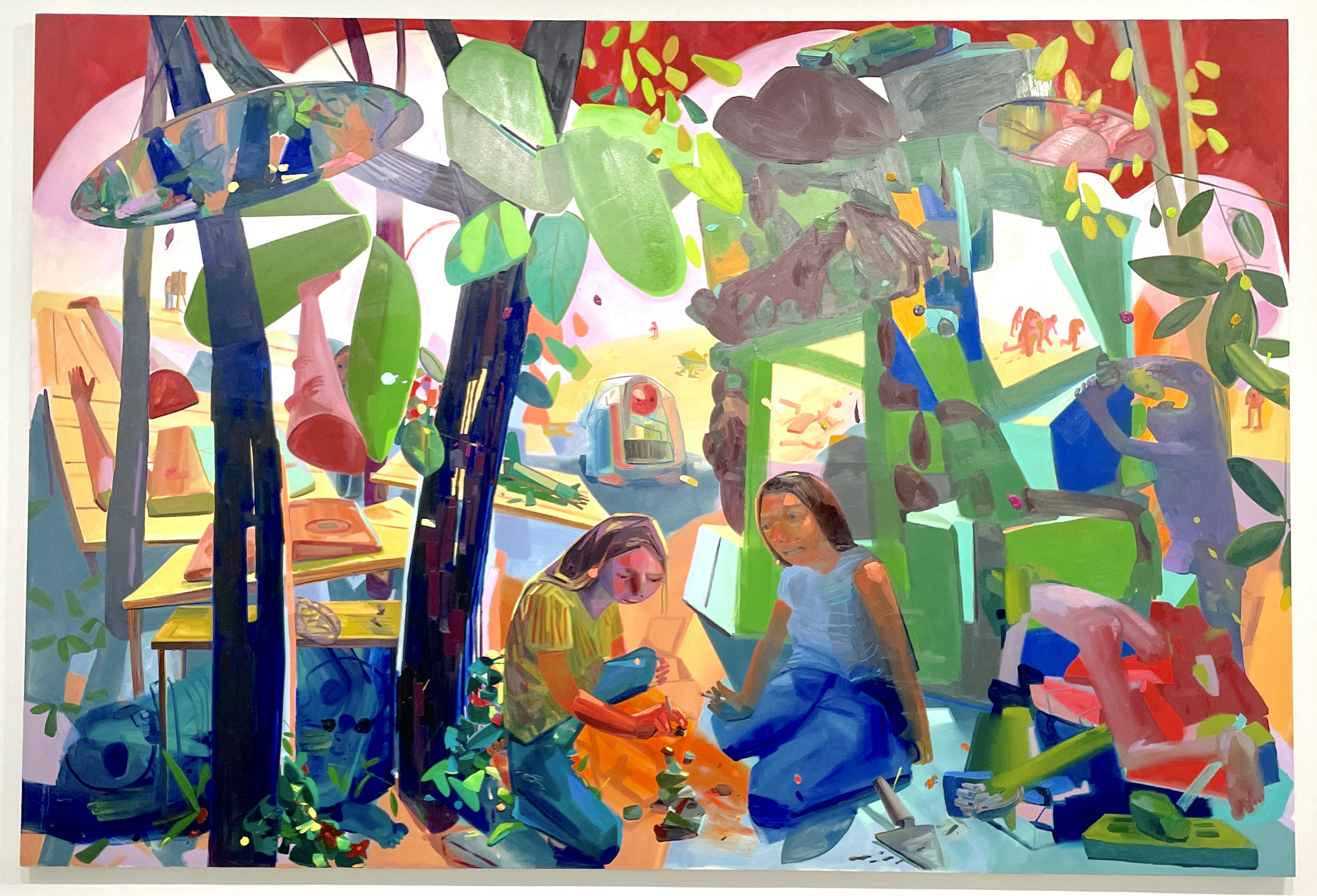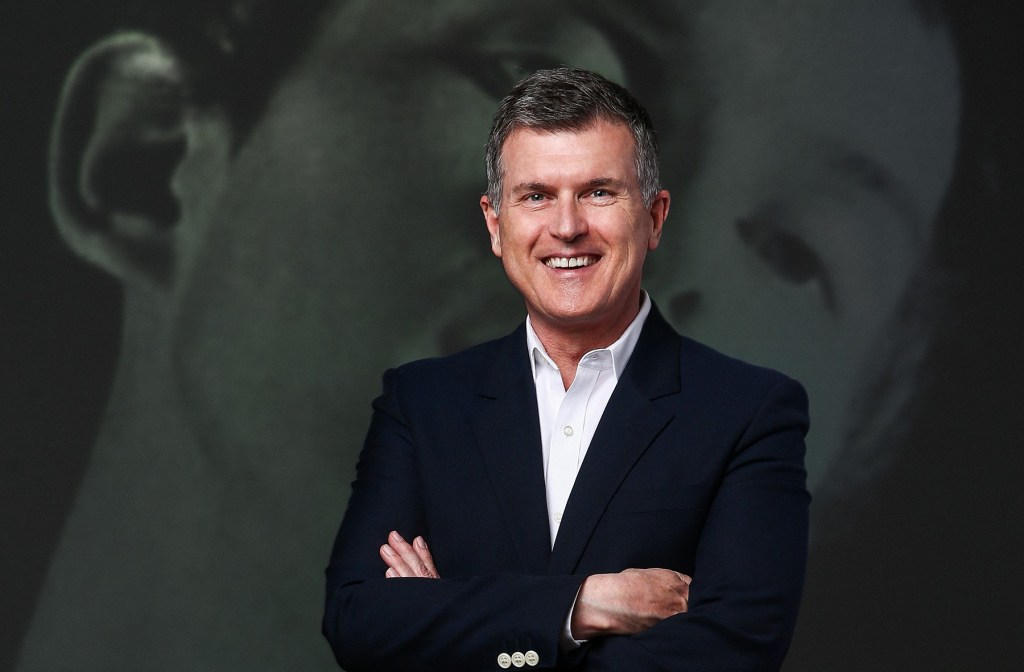The transfer of the building to Sotheby’s is a symbolic transformation, as well. Museums certainly depend on agglomerations of wealth to build collections and sustain their mission, and artists are no strangers to greed. But museum culture has been colonized largely by people on the outside of that kind of wealth: scholars, curators, artists and art lovers. All too often, public institutions have to court the wealthy, but smart public institutions speak the language of their larger audience. Sotheby’s, on the other hand, conjoins words like “art” and “luxury goods” as if there was no distinction between them.
The aim of the Perfumer’s Garden is to unlock the mysteries and significance behind the scented flowers of the 17th century French court — yet also remind us that it was no accident that the Versailles Palace was the very place where the job of perfumer was actually invented during that century.
The gardens sprawl in four sections, reimagining the vision of the Sun King, Louis XIV, who wanted his grounds to overflow with the scents of orange blossom, hyacinth, tuberose and jasmine. The king had a practical reason for his obsessions: Following the plague that killed tens of millions of people in the Middle Ages in Europe, people feared that hot water could spread infection. Courtiers instead washed with alcohol rubs and used scents to mask body odors.
But there was also a diplomatic explanation for these floral obsessions: The king’s flower collection served as a means of projecting strength as France became the world’s greatest power in that century.
Historian Danielle McGuire, examining the epidemics of sexual violence and lynching used to preserve a slave society after Reconstruction ended, asked a question that has stuck with me since I first spoke to her six years ago. It’s a question that pertains to Turner’s life and that of many modern Black women seeking liberation: “If you have a slave culture for hundreds of years, what happens when slavery ends? Does the culture change? … And the answer was of course it didn’t.”
What remains, in part, is indifference, a blindness to Black women’s suffering, their ability to feel pain, to be raped, to be regarded as something other than profit centers. Turner, of course, was too captivating to ignore. She had the greatest gams ever seen on a human being, a voice to match, style for days, and an indomitable stage presence. At first glance, she was the embodiment of American grit, a person many saw as proof of concept for the nation’s obsession with rugged individualism and bootstrapping.
- In the New York Times this week, reporter Lola Fadulu covers the City’s lawsuit against the Queens Library over accessibility concerns at its Hunters Point location:
Once it opened, it was lauded as a feat of design. The library has huge windows that carve whimsical jigsaw puzzle-piece shapes out of the concrete facade and offer spectacular views of Manhattan.
But concerns mounted soon after the building’s opening.
In October 2019, the U.S. Department of Justice opened an investigation into whether the building complied with the Americans With Disabilities Act. The city is the subject of that investigation, as well as another one opened by the New York City Commission on Human Rights.
In November 2019, Tanya Jackson, a woman with mobility issues, and the Center for Independence of the Disabled filed a lawsuit in Brooklyn federal court against the library, its board of trustees and the city.
“They built a monument to stairs,” said Sharon McLennon-Wier, the executive director of the Center for Independence of the Disabled.
- For Dirt, writer Becca Schuh reflects on lessons from working in the food service industry and takes thinly-veiled elitism in literary circles to task:
I do think being a waitress has done one great thing with respect to writing: it has made me understand deeply and fundamentally how many writers are full of shit. It has altered my view of privilege and money and the ways that people complain that mask the fact that in their world, they would never have to do a job that equates to basic manual labor, because their intelligence is worth more than waiting on others. (Side note: Sweetbitter was an overrated waitressing book, Love Me Back is underrated.)
Maybe by accident, maybe on purpose, I fell in to a social group in New York City with many people who consider themselves to be intellectuals. I’ve been privy to countless conversations about how intellectual labor is labor, about how someone needs to do the sitting around and thinking and theorizing, with the thought underlying this being: and it certainly wouldn’t be the people who carry things for a living.
Why don’t websites hire service people to write about food? How do ‘restaurant journalists’ exist, when servers who are also artists are standing right here? A book critic once told me, “a website could never be staffed by service people, the quality of the writing would be too low,” and I wanted to laugh. I suspect it’s easier to teach a waitress to be a writer than an intellectual to be a waiter.
- After a CUNY Law School student criticized the Israeli state’s occupation of Palestine during her graduation address, she was promptly attacked online and denounced for “hate speech” in a statement by the school’s board of trustees. Ali Harb writes in Al Jazeera:
Activists say the campaign against Mohammed is the latest episode in attacks against pro-Palestine advocates. Palestinian rights supporters in the US often face accusations of anti-Semitism and campaigns to cancel their events and protests.
Professors critical of Israel have lost their jobs as the result of pressure campaigns. Political nominees to human rights and diplomatic positions in the government have been withdrawn over past criticism of Israel in recent years.
But this week, as pro-Israel groups and politicians put Mohammed in their crosshairs, many Arab, Muslim and Palestinian rights advocates came to her defence.
- TikToker Kahlil Greene breaks down the film industry’s notorious “Mexico filter,” which New York City mirrors pretty closely right now!
Required Reading is published every Thursday afternoon, and it is comprised of a short list of art-related links to long-form articles, videos, blog posts, or photo essays worth a second look.



